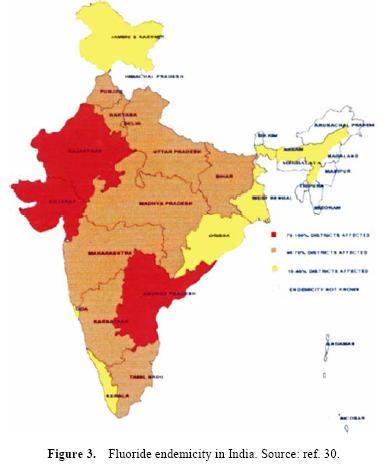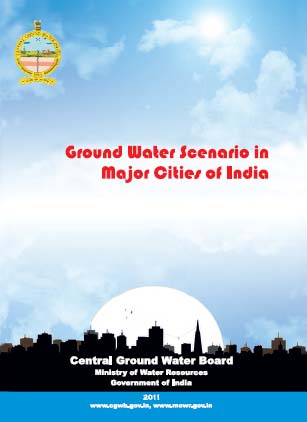/topics/deep-aquifers
Deep Aquifers
Polluted river stretches in India: Criteria and status - A report by Central Pollution Control Board
Posted on 04 Oct, 2011 10:53 PMThis brief report by the Central Pollution Control Board (CPCB) presents an analysis of the monitoring of the water quality in India under the National Water Quality Monitoring Programme. The water quality data for the years 2002-2008 has been analysed and monitoring locations exceeding the water quality criteria have been identified as polluted locations with respect to risk.
Institutionalization of users' level - Water quality monitoring and surveillance in Gujarat - A report by WASMO
Posted on 26 Sep, 2011 11:39 AMThe programme focused on community involvement in assessing and evaluating water quality.
Odisha Groundwater (Regulation, development and management) Bill, 2011
Posted on 09 Sep, 2011 06:44 PMContent courtesy: Odisha Water Forum
The Odisha Groundwater (Regulation, Development and Management) Bill, 2011 has been placed before the Odisha Legislative Assembly in this session. Odisha Water Forum has gone through the contents of this bill. While Odisha Water Forum appreciates the initiative of the Government of Odisha to regulate development and management of groundwater, it is concerned about the fact that this bill does not address the fundamental concerns regarding groundwater management.
Frequently asked questions (FAQ) on Groundwater - Understanding the basics
Posted on 08 Sep, 2011 04:56 PMA comprehensive FAQ Manual on Groundwater authored by Dr Mihir Kumar Maitra narrows down the existing knowledge gaps amongst the common groundwater users.
The most popular FAQs are listed below. Please click on a topic to view more detailed information:
Basic information on groundwater

Groundwater, self-supply and poor urban dwellers - A review with case studies of Bangalore and Lusaka by IIED
Posted on 24 Aug, 2011 08:32 PMIt investigates the difficulties they face and emphasizes the need for better integration of groundwater in the planning and management of urban water resources.
Challenges of sustainable water quality management in rural India - Current Science
Posted on 23 Aug, 2011 04:51 PM The article informs that access to safe drinking water remains an urgent necessity, as 30% of urban and 90% of rural households still depend completely on untreated surface or groundwater.
The article informs that access to safe drinking water remains an urgent necessity, as 30% of urban and 90% of rural households still depend completely on untreated surface or groundwater.
While access to drinking water in India has increased over the past decade, the tremendous adverse impact of unsafe water on health continues. It is estimated that about 21% of communicable diseases in India are water related.
Although some degree of intervention in terms of chlorination and monitoring of water quality exists in major cities and towns, rural India, which constitutes the bulk (70%) of the population, is usually deprived of such interventions. The population in rural India is mainly dependent on the groundwater as a source of drinking water. As a quality concern the groundwater is often found to be contaminated with fluoride, arsenic, iron and salts. In recent years, fluorosis has emerged as major public health issue in rural India.
Dynamic groundwater resources of Maharashtra – A report by CGWB and GSDA (2004)
Posted on 08 Aug, 2011 04:35 PMThis report on “Dynamic Ground Water Resources of Maharashtra (2004)” presents the groundwater estimates for the State of Maharashtra as computed by the Central Ground Water Board (CGWB) and Groundwater Survey and Development Agency (GSDA) based on the guidelines given by the Groundwater Estimation Committee (GEC-1997) constituted by Ministry of Water Resources (Government of India).
Maps generated from the integration of water level data of Central Ground Water Board and State Ground Water Board
Posted on 17 Jul, 2011 03:49 PMThe CGWB under the Ministry of Water Resources, Government of India, is the national apex agency entrusted with the responsibilities of providing scientific inputs for management, exploration, monitoring, assessment, augmentation and regulation of ground water resources of the country.
Groundwater governance in India – A case study by World Bank
Posted on 09 Jul, 2011 11:43 AMIt examines the impediments to better governance of groundwater, and explores opportunities for using groundwater to help developing countries adapt to climate change. It attempts to understand the practical issues that arise in establishing robust national governance frameworks for groundwater and in implementing these frameworks at the aquifer level.
The case study focused on the national, state and local levels. At the national and state levels, it analyzed the policy, legal, and institutional arrangements to identify the demand and supply management and incentive structures that have been established for groundwater management. At the local level, it assessed the operations, successes, and constraints facing local institutions in the governance of a number of aquifers within peninsula India, on the coast and on the plain of the Ganges river valley.
Groundwater scenario in major cities of India – A report by Central Ground Water Board
Posted on 17 May, 2011 10:35 AM It covers varying groundwater scenarios in the country including the highly developed metros, the hilly region, the coastal cities, the cities tapping unconsolidated and hard rock aquifers. The report briefly describes the administrative set up, status of water supply and demand, groundwater scenario, feasibility of rainwater harvesting and groundwater development strategy.
It covers varying groundwater scenarios in the country including the highly developed metros, the hilly region, the coastal cities, the cities tapping unconsolidated and hard rock aquifers. The report briefly describes the administrative set up, status of water supply and demand, groundwater scenario, feasibility of rainwater harvesting and groundwater development strategy.
It is an updated version of an earlier report on “Groundwater in urban environment in India” (2000). Since then, groundwater regime, urban demography and water demand have changed enormously. This report will form a scientific base for an in-depth understanding of urban groundwater system including aquifer geometry, water level behavior and groundwater quality. The possibility of artificial recharge to rejuvenate the urban aquifers has also been discussed.





